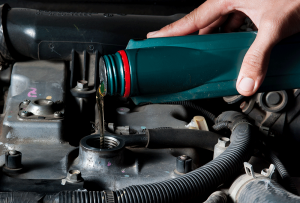
Keeping your vehicle in the best condition possible is important. This includes remembering to change the oil in the vehicle. If you to choose to ignore the oil change, it could end up doing more damage to your vehicle than you may realize. Part of this includes sludge that starts to form. Sludge is old and congealed oil resulting from excessive contamination, heat and oil additive breakdown. Sludge typically forms over a long period of time and generally builds up when a vehicle owner skips oil changes or travels many miles past the recommended oil change interval.
One day the oil is shiny and slick but, over time, that incredible lubricant can become gunky and provide less effective protection for your engine parts. This could be caused by delaying your oil change is the main culprit. Over time, motor oil becomes contaminated with engine metals, acids and air humidity, eventually transforming into sludge. Waiting too long to change your oil will increase the likelihood of sludge infecting all the parts where motor oil travels. Also, do not stress out your oil. Prolonged stress and under-hood heat can lead to sludge filled consequences for your engine oil. Humidity plays a big role in oil consistency.
Excessive heat causes the oil to breakdown resulting in sludge and engine deposits. High temperatures also cause oil to thin out. This typically results in metal on metal grinding or wear in your engine. This problem typically can become even more severe if you tow heavy loads or if you leave your vehicle running idle for extended periods of time. Higher-grade oil will greatly benefit your vehicle in this situation. Repeated short distance driving means your oil may not have time to reach optimal operating temperatures. This enables water condensation and combustion bi-products, such as smoke, to dilute oil, accelerating the breakdown of your oil and shortening the lifespan of your engine components.
Very hot or very cold temperatures will cause faster oil breakdown, requiring oil changes sooner. As the temperatures get very cold, the oil gets thicker because of the temperature drop. Oil is harder to pump during startup, potentially leading to accelerated engine wear and difficulty starting your vehicle. Remember, thinner oils are ideal during winter. The lower grade thinner oil will make it easier for you to start your vehicle. Always make sure you are adding the proper motor oil to your vehicle. Check your owner’s manual or call us to determine the proper oil grade for your vehicle.



